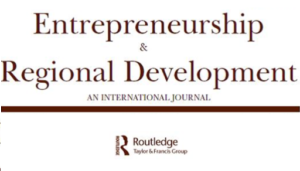Episode 120 – Kathleen Burke – Neruda through copper-coloured glasses: the role of place attachment in the embeddedness of Chilean entrepreneurship
Despite scholarly interest in how emotional and instrumental place attachments motivate entrepreneurship, the influences on embeddedness remain underexplored. Building on the notion that entrepreneurship becomes embedded in a locality, we argue that this process is packed with place-based interpretations of the material and imagined reality. Engaging with the empirical setting of Chile, the world’s largest…
Read More
